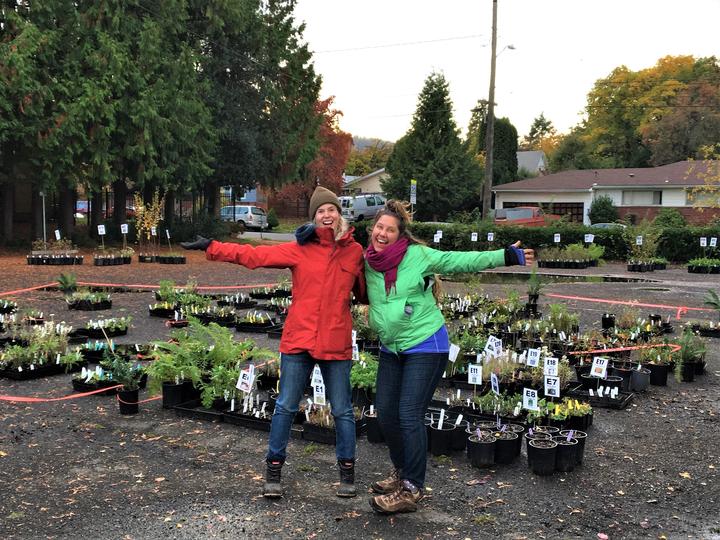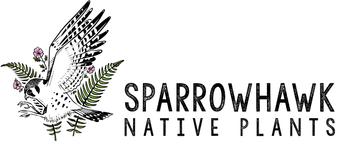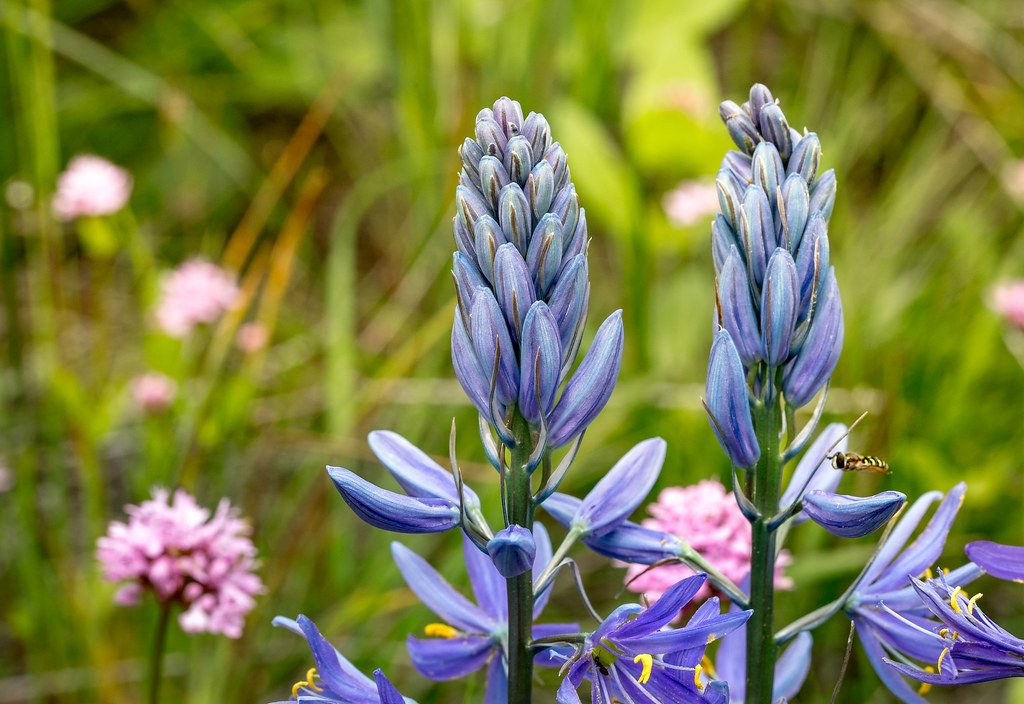|
Our next fundraising event is coming up in April — a native plant sale! We’re thrilled to be partnering with a new, woman-owned business, Sparrowhawk Native Plants. They are co-hosting this pop-up plant sale with us, and a portion of the sales will benefit Rocky Butte Farmers Market. Working with them has been an absolute pleasure and we are looking forward to our event together — Rocky Butte Farmers Market, Sparrowhawk, and you! So how does it work? Order over 60 varieties of native plants ahead of time between March 1 and 15 (or until plants run out), and we’ll distribute your pre-ordered plants to you on Friday, April 3, 9am-4pm or Saturday, April 4, 9am-2pm at Dharma Rain Zen Center (8500 NE Siskiyou Street). Dharma Rain is, of course, where we held our original pop-up markets in 2019. Rocky Butte Farmers Market will only benefit from the sale if you pick up at Dharma Rain on April 3 or 4, so we encourage you to choose that location with your order. We are looking for volunteers! If you’d like to volunteer at the pick-up days, head to our Volunteer page and sign up for a shift (or two!). We really need volunteer help, so sign up today!  Sparrowhawk Origins and Success Founded in July 2019 by Nikkie West and Tracy Cozine, Sparrowhawk is dedicated to getting more native plants into the hands and yards of local gardeners. For months before they started the business, they talked to people with Backyard Habitat signs in their yards and with folks at community events, and learned about the challenges people were facing in accessing native plants at the right time of year and at affordable prices. The perception at nurseries is that “It’s hard to move native plants off the shelves.” But there was sure desire for them in Portland! They figured that there had to be a solution for this predicament, and that evolved into the form of community-based online plant sales. They’ve found great success with these online sales and neighborhood pop-ups. They put together their inaugural sale last year with zero name recognition and no email list — very impressive. The first popup achieved pre-orders from 300 people ordering 5,000 native plants! Everyone picked them up in St Johns and had a wonderful time together. This model, among other things, allows Nikkie and Tracy to bring native plants to communities who don’t have typical or easy access to them. Nikkie and Tracy came away from last fall’s event with so much optimism and a determination to make it even more community based; the collaborative model with community organizations really works for them. And prices are about 20% lower than retail. At last year’s market, most plants were on the average about $7 for a one gallon container, $3.50 for four inch pot. Slower growing plants (like trees) tend to cost a little more. But since Sparrowhawk doesn’t have the overhead of operating a traditional brick & mortar shop, they can offer lower prices. They call the business model “a nursery without a nursery; a new kind of nursery.” We spoke with Nikkie to get a better idea of Sparrowhawk and her background with native plants. We asked her about where her love of plants came from, and she replied, “I grew up in a rural environment. We lived a couple miles from this tiny town of 3,000 people. It was a wild upbringing.” She continues, “Dad was a vegetable gardener, yielding three acres of produce yearly. Mom was a birder and hiker. We spent lots of time on that land that I grew up being very attached to it. Over the years my parents moved toward organic and natural gardening for the benefit of wildlife balanced with aesthetics. They are mirroring a lot of the work I’m doing, and taking the lessons back to their gardens as they age.” Some Favorites and Recommendations Among those 60+ plant options, NIkkie suggested a handful of plants to us. For shade plants there’s Oregon grape, ferns, sweet groundcovers, piggyback plant, and oxalis. Fun sun plants include lupine and red columbine. She continued sharing some additional favorites. “I’m always a fan of Common Camas,” she remarked. “It’s a very sweet plant.” She had a lot to say about elderberries, too. “I’m always excited about elderberry — it has tremendous wildlife value and can be used for medicinal purposes. It's a large yard shrub, almost like a small tree. Red elderberry can be poisonous if eaten in large quantities. Blue elderberry is not toxic (you’ll see it in cough syrup). And both are used widely by birds; they usually beat you to it!” She is also enthusiastic about trees. “I also always want to give a plug for trees!” she exclaimed “People are reluctant to plant trees because they require maintenance, they drop seeds and fruit, and need more care as they age out. But they are crucial for the future of this planet. We love to make them available for sale. We sell relatively limited quantities but I wish we could increase that. In terms of their use, they are important for wildlife and mitigating erosion. Some are concerned that trees shade vegetable gardens, but an option is to plant a tree and buy your produce at a farmers market!” As for what to buy depending on your living situation, Nikkie had some suggestions. For an apartment dweller, flexibility and staying power is key. “You don't own the (small) space so you might not feel justified making something more permanent,” she said. “Sword ferns are good — they’re not fussy, they don’t spread, and are good in most soil.” For gardeners with more space and permanence, red flowering currant is a great entry point for native plant gardening. “Its flowers attract a lot of early pollinators, and that has an important role in the ecosystem,” She remarked. “I really appreciate how it cues me into paying attention to those relationships early in the season. I feel the same way about yarrow. It likes sunny dry soil, it’s completely not fussy, has a really pretty flower that lasts for a long time, and it's very attractive to beneficial insects for other kinds of gardening.” One distinction I came to learn during my conversation with Nikkie is that native plants aren’t categorized like most plants in the nursery. For instance, the term “ornamental” is not used; that is a non-native plant term. They are just “native plants.” “Some native plants are indeed edible,” she says. “But if you want to buy edible plants there are plenty that have been hybridized that are delicious and flavorful. None of our plants have particularly high yields. However, native plants are useful for herbal medications.” Be sure to order your plants between March 1 and 15, and please choose your pick-up location at Dharma Rain Zen Center in April, so the market will benefit from this partnership with Sparrowhawk. We look forward to helping you bring the beauty of our region’s native plants into your home! Comments are closed.
|
Market NewsBrought to you periodically by our team of volunteer writers! Archives
June 2024
Categories |


 RSS Feed
RSS Feed